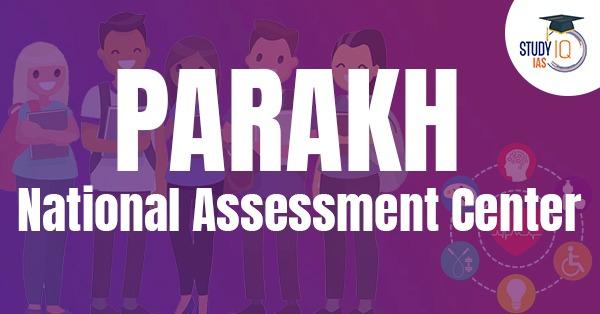Table of Contents
PARAKH (Performance Assessment, Review and Analysis of Knowledge for Holistic Development)

Background of PARAKH
- The union government has been planning to draw up a “benchmark framework” to assess students at the secondary and higher secondary level to bring about “uniformity” across state and central boards.
- Over the last few months, the NCERT has held a series of meetings with the representatives of state boards and SCERTs to arrive at a common understanding to implement the plan, as part of which a new assessment regulator called PARAKH is being set up.

About PARAKH (Performance Assessment, Review and Analysis of Knowledge for Holistic Development):
- Functions:
- It will be assigned with the work of setting norms, standards and guidelines for student assessment and evaluation for all recognized school boards of India. This task will encourage and help school boards to shift their assessment patterns towards meeting the skill requirements of the 21st century.
- PARAKH will act as a constituent unit of the NCERT and will also be tasked with holding periodic learning outcome tests like the National Achievement Survey (NAS) and State Achievement Surveys.
- PARAKH will monitor achievement of learning outcomes in the country.
- PARAKH will eventually become the national single-window source for all assessment related information and expertise, with a mandate to support learning assessment in all forms, both nationally and where applicable, internationally,
Advantages of PARAKH
-
- Bringing parity in assessment: It will bring about “uniformity” in assessment across state and central boards which currently follow different standards of evaluation, leading to wide disparities in scores.
- Helps in achieving the goals of NEP 2020: It will seek to put an end to the emphasis on rote learning, as envisaged by the National Education Policy (NEP) 2020. PARAKH is also part of the NEP proposal.
- Promoting equality in admissions: PARAKH will help tackle the problem of students of some state boards being at a disadvantage during college admissions as compared to their peers in CBSE schools.
- More effective assessment: It will develop and implement “technical standards for the design, conduct, analysis and reporting” of tests at all levels of school education.

Other important outcomes from the above series of meetings
- Most states endorsed the NEP proposal to hold board exams twice a year, including one for helping students improve their scores.
- States are also on board regarding a proposal to offer two types of papers on mathematics — a standard exam, and another to test higher-level competency.
- It will help reduce the fear of maths among students and encourage learning.
- Also some discussions went around the NEP proposals to have two sets of question papers for most subjects – one with MCQs (multiple choice questions), and the other descriptive.






















 WhatsApp
WhatsApp